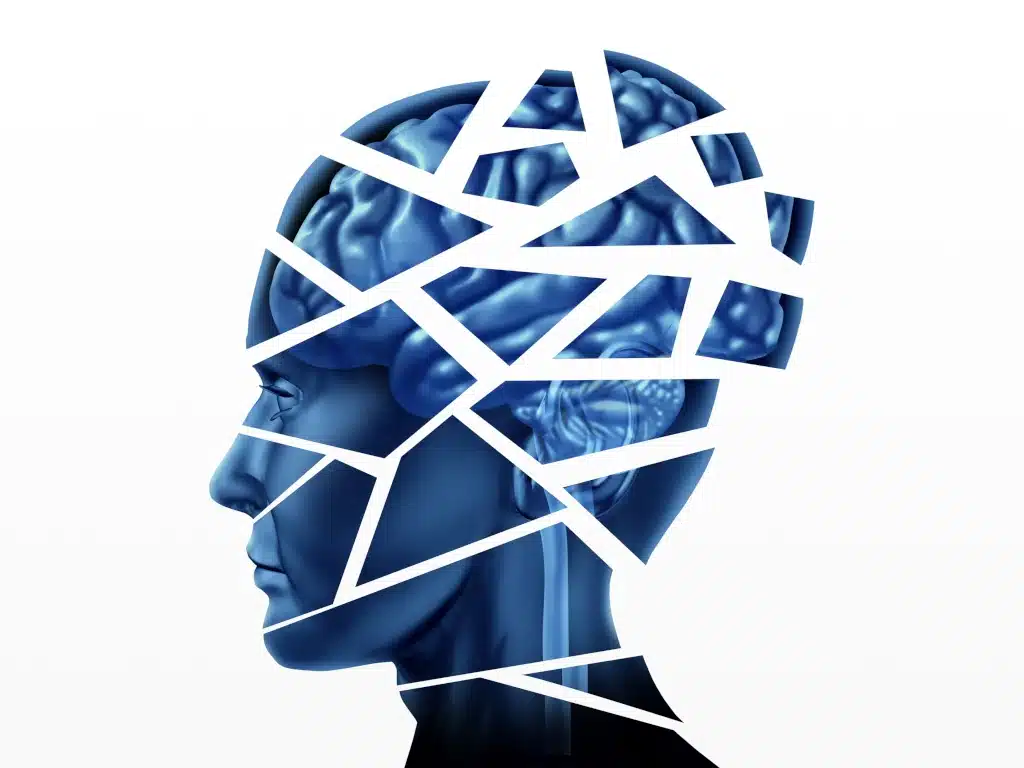Trauma is a deeply distressing experience that can have long-lasting effects on an individual’s physical, emotional, and psychological well-being. It can be caused by various events, and its impact can vary from person to person.
Is it an emotional response? Is it a psychological injury? Thanks to how it’s used in various settings and situations, the true meaning of trauma is based on each persons own experiences. This is why experts in the field advise that trauma is truly in the eye of the beholder. The effects of a trauma can cause stress hormones to overreact in folks and can negatively impact parts of the brain responsible for emotional regulation and cognitive functionality.
In this blog post, CarePlus New Jersey will explore the meaning of trauma, delve into the different types of trauma, and discuss common types of traumatic events. With the information we share, we aim to shed light on this topic, so you or your loved one will know how to look for signs of trauma and get the treatment needed.
Keep reading to learn more. Please know, if you or someone you know are grappling with effects related to having experienced a traumatic event and may need mental health care, contact our clinic today.
What Is Trauma?

According to the American Psychological Association, trauma is the emotional response to a terrible event (such as a car crash). Some examples of potentially traumatic events are things that can cause bodily injury, violence or sexual assault, physical abuse, or a natural disaster.
Trauma can be a single incident or prolonged exposure to stressful circumstances. These circumstances overwhelm an individual’s ability to cope and disrupt their sense of safety and well-being. Whatever the trigger, trauma can leave lasting adverse effects and manifest in various ways, such as:
- Emotional distress
- Intrusive thoughts or memories
- Nightmares
- Avoidance
- Hypervigilance
- Changes in mood and behavior
Types of Trauma

There are a few types of trauma classified by clinicians. Here are some of them.
Acute Trauma
Acute trauma refers to a single distressing event, such as a car accident, physical assault, or natural disaster. It is often intense and immediate, leaving a lasting impact on the individual’s mental state and body.
Chronic Trauma
In contrast to acute trauma, chronic trauma involves prolonged exposure to a stressful and traumatic circumstance. It often occurs over an extended period, sometimes years, or even a lifetime, an example being enduring a global pandemic.
Complex Trauma
This type of trauma typically arises from repeated or prolonged exposure to a variety of traumatic events, such as ongoing abuse, neglect, or living in a war zone. Complex trauma is different from chronic trauma in that several causes can create or exacerbate this emotional response.
Vicarious Trauma
Vicarious trauma occurs when an individual — often a caregiver or a professional in a helping field — is exposed to the traumatic experiences of others. Witnessing or hearing about the suffering of others can lead to secondary traumatic stress, affecting the mental well-being of the observer.
Developmental Trauma or Childhood Trauma
Developmental trauma refers to adverse experiences during crucial stages of childhood development, such as sexual or physical abuse, neglect, or unstable environments. These adverse childhood experiences can have long-lasting negative effects, that may affect an individual as they grow older.
Traumas – The Top 4 Causes
Traumatic events can encompass a broad range of experiences that can lead to trauma. Some common examples are:
One – Natural Disasters:
Earthquakes, hurricanes, and floods can cause significant distress and trauma due to the sudden and uncontrollable nature of these events.
Two – Physical and Sexual Assault:
Experiencing violence or abuse can have profound and long-lasting effects on an individual’s mental and emotional well-being.
Three – Combat and War-Related Trauma:
Soldiers and civilians exposed to combat situations or living in war zones can develop mental and emotional trauma as a result of the constant threat to their lives and witnessing atrocities.
Four – Accidents and Medical Trauma:
Serious accidents, life-threatening injuries, or traumatic medical procedures can result in significant psychological trauma.
The Effects of Trauma from a Traumatic Event

Experiencing trauma can significantly increase the risk of developing various mental health disorders. The distressing and overwhelming nature of traumatic events can have serious adverse effects and a profound impact on a person’s psychological well-being. Here are some common mental health disorders that can stem from trauma.
Post-Traumatic Stress Disorder (PTSD)
PTSD is a well-known and widely recognized disorder that can develop after experiencing or witnessing a traumatic event. PTSD symptoms often experienced by individuals include: intrusive memories, emotions, flashbacks, nightmares, and intense anxiety or distress related to the traumatic event. Folks living with PTSD may also exhibit avoidance behaviors, emotional numbness, and hypervigilance.
Depression
Trauma can trigger or contribute to the development of depression. Individuals who have experienced trauma may struggle with persistent feelings of sadness, hopelessness, and a loss of interest in activities they once enjoyed. Trauma-related depression can be particularly challenging, as it often involves processing distressing memories and addressing underlying feelings of guilt, shame, or a sense of self-blame.
Anxiety Disorders
Trauma can significantly heighten anxiety levels and lead to the development of various anxiety disorders, such as generalized anxiety disorder (GAD), panic disorder, and specific phobias. Individuals may experience excessive worry, fear, panic attacks, and avoidance of situations that remind them of the traumatic event.
How Is Trauma Treated?

Addressing and healing from trauma is a complex and individualized process. The following are some common approaches used in treating trauma at CarePlus New Jersey.
- Trauma Therapy: Psychotherapy — particularly trauma-focused therapies such as cognitive-behavioral therapy (CBT) and dialectical behavior therapy (DBT) — can help individuals process traumatic experiences, reduce symptoms, and develop healthy coping strategies.
- Eye Movement Desensitization and Reprocessing (EMDR): According to EMDRIA (EMDR International Association), “EMDR is a structured therapy that encourages the patient to focus briefly on the trauma memory while simultaneously experiencing bilateral stimulation (typically eye movements), which is associated with a reduction in the vividness and emotion associated with the trauma memories. Eye Movement Desensitization and Reprocessing (EMDR) therapy is an extensively researched, effective psychotherapy method proven to help people recover from trauma and PTSD symptoms.” CarePlus NJ has clinicians trained in EMDR.
- Medication: In some cases, medication may be prescribed to alleviate symptoms associated with trauma, such as depression, anxiety, and sleep disturbances.
- Supportive Interventions: Support groups, peer counseling, and community resources can provide valuable support and validation for individuals dealing with trauma. Connecting with others who have had similar experiences can foster a sense of belonging and help heal emotional wounds.
- Self-Care and Holistic Approaches: Engaging in self-care activities can help individuals manage their trauma symptoms and promote overall well-being. These may include exercise, mindfulness, meditation, and creative outlets.
What is Trauma Informed Care?
Trauma-informed care is an approach to healthcare and social services that recognizes and responds to the impact of trauma on an individual’s physical, psychological, and emotional well-being. It involves understanding and acknowledging that many people have experienced traumatic events or adverse life experiences, such as abuse, violence, neglect, household dysfunction or natural disasters.
The core principles of trauma-informed care include:
- Safety: Creating a physically and emotionally safe environment for individuals receiving care.
- Trustworthiness and Transparency: Building trust and maintaining clear communication with individuals, ensuring they are informed about the care process and any potential risks or benefits.
- Choice and Empowerment: Prioritizing the individual’s autonomy and providing opportunities for them to make decisions and participate in their own care.
- Collaboration and Mutuality: Recognizing the importance of a collaborative and respectful partnership between the caregiver and the individual, where their input is valued.
- Cultural, Historical, and Gender Issues: Considering and addressing the unique cultural, historical, and gender-related aspects of an individual’s experience to provide appropriate and sensitive care.
- Strengths-Based Approach: Focusing on individuals’ strengths and resilience rather than solely on their symptoms or challenges.
- Trauma Awareness: Educating healthcare providers and staff about the prevalence and impact of trauma and its potential effects on individuals seeking care.
CarePlus New Jersey and Trauma in Our Community
CarePlus New Jersey offers trauma-informed care to training healthcare providers and staff, law enforcement, family members, and professionals in the community to recognize and respond to the signs and symptoms of trauma, adapting policies and practices to avoid re-traumatization, and integrating trauma-informed principles into every aspect of care, including assessment, treatment planning, and service delivery.
CarePlus aims to promote healing, recovery, and resilience while minimizing the potential for further trauma or distress.
Final Thoughts
Trauma is a complex and deeply impactful experience that can affect individuals in various ways. By understanding the various relationships between different types of trauma, the common traumatic events, and the available treatment options, we can foster a more empathetic and supportive environment for those who have experienced trauma.
Remember, seeking professional help and building a support network are crucial steps toward healing and recovery. If you or someone you love has had a traumatic experience like emotional abuse or physical injuries, take advantage of CarePlus New Jersey’s mental health services today. Contact us to schedule an appointment.
Sources:
https://www.apa.org/topics/trauma
https://www.psychiatry.org/patients-families/depression/what-is-depression
https://adaa.org/understanding-anxiety/trauma

Jen Velten, LPC, ACS, CCTP, DRCC- Director of Trauma Services
Jen Velten graduated John Jay College of Criminal Justice in 2015 with an MA in Forensic Mental Health Counseling and became a Licensed Professional Counselor in 2019. She is licensed in the State of New Jersey with 8 years of experience working with youth and families in the mental health field. She was a school counselor for 3 years as well as a clinician with Care Plus in the Child/Family Division for the past 8 years. Jen has focused her expertise on helping children and adults to overcome complex trauma experiences as well as work with the LGBTQ+ community. Jen is trained in TF-CBT, YMHFA, PFA and most recently became certified in EMDR.

